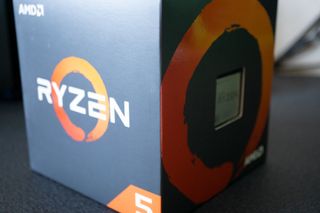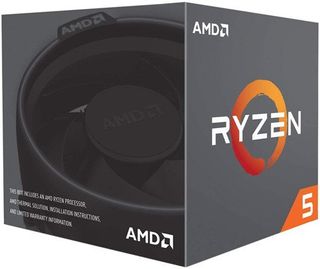AMD Ryzen 5 2600 vs. AMD Ryzen 5 2600x: Which CPU is best for you?
We've been putting systems together for many years and know what parts offer better value, depending on the needs of the PC owner. Here's our recommendation for choosing between the Ryzen 5 2600 and 2600X.


Reliable performer
The 2600X is the better option for system builders who wish to install everything and enjoy the reliable performance without overclocking and fine-tuning. While unlocked, you'll be better off saving some money and choosing the 2600 (non-X) since it's essentially the same processor.
For
- Faster clock speeds as standard
- Includes better stock cooler
Against
- More expensive
- Worse value when overclocking

Overclock-friendly
This is the choice for overclockers and system builders who have aftermarket cooling solutions at hand. You're getting the same processor, but with slower clock speeds as standard and a not as good (but still solid) stock CPU cooler.
For
- Less expensive
- Better value for overclocking
Against
- Slower CPU out-the-box
- Worse stock cooler included
Both the Ryzen 5 2600 and Ryzen 5 2600X are excellent processors — because they're essentially the same CPU. The only differences are faster clock speeds as standard with the 2600X and the inclusion of a better stock cooler. Go with the non-X 2600 unless you won't overclock the CPU.
Impressive processors
AMD's Ryzen 5 2600 and 2600X are great processors for productivity workstations and gaming rigs. Compared to the FX series of old, these latest generation CPUs perform admirably with tasks that rely on either single or multi-core setups.
Specification-wise, you won't see much of a difference, aside from the aforementioned clock speeds and stock cooler.
| Header Cell - Column 0 | Ryzen 5 2600X | Ryzen 5 2600 |
|---|---|---|
| Cores | 6 | 6 |
| Threads | 12 | 12 |
| Base clock | 3.6 GHz | 3.4 GHz |
| Boost clock | 4.2 GHz | 3.9 GHz |
| Cooler | Wraith Spire | Wraith Stealth |
| Price | $208 | $155 |
| TDP | 95W | 65W |
When pushing both processors past factory speeds, you'll likely want to invest in better cooling, unless having a jet engine inside your PC case is to your tastes. Saving the $50 on the Ryzen 5 2600 to cover the costs of an aftermarket cooler makes more sense as a purchasing decision.
Buying the 2600X won't necessarily lead to better overclocking results. You'll likely hit similar limits with either processor. Though if you do not wish to do overclocking and just want a PC that works after you've screwed everything together, the 2600X is the better option for better out-the-box clock speeds and a more beefy cooler.
2600X offers excellent stock performance
The major selling point for the 2600X is the ability to install the CPU and better stock cooler. Enjoy faster clock speeds out-the-box and simply enjoy the available performance in demanding apps and games. That's the only reason to choose this option.

Better performer out-the-box
When you just want to install the CPU and be done with the build, the 2600X could be considered the better choice due to the faster clock speeds as standard. Less hassle, better performance.
Choose the non-X for better value
With overclocking in mind, there's no reason to ignore the 2600 because it offers far better value. For going beyond what the stock coolers can handle in terms of thermal output, you'll need an aftermarket cooler, which could be covered by the savings with this processor.
Get the Windows Central Newsletter
All the latest news, reviews, and guides for Windows and Xbox diehards.

Better value for overclocking.
Should you desire to really push your PC to the limit and overclock the CPU, you'll want to choose the Ryzen 5 2600. There's really no reason to spend the extra $50 for additional clock speeds you'll surpass regardless.

Rich Edmonds was formerly a Senior Editor of PC hardware at Windows Central, covering everything related to PC components and NAS. He's been involved in technology for more than a decade and knows a thing or two about the magic inside a PC chassis. You can follow him on Twitter at @RichEdmonds.
